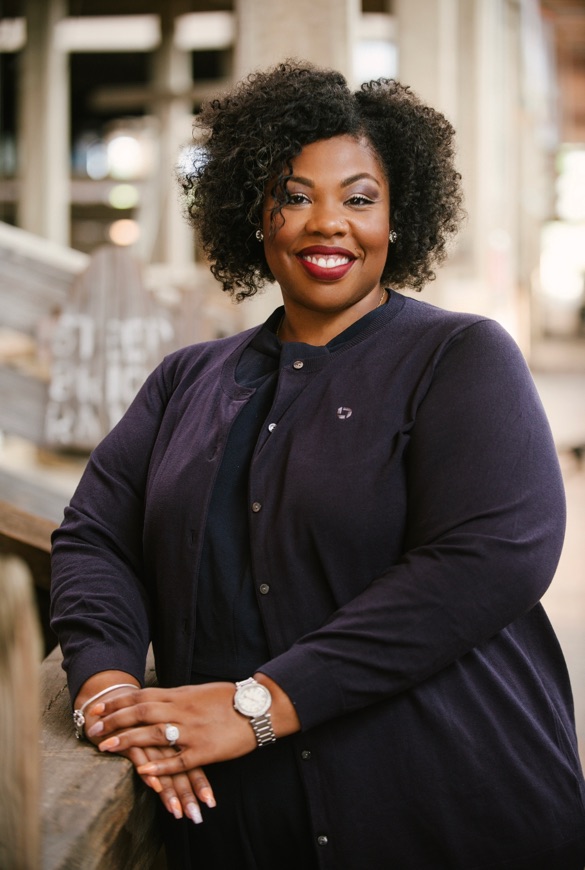Monique Winfree, JPMorgan Chase Community Manager
Supplier diversity is a crucial part of an organization’s success. It’s a way for companies to promote innovation, cultivate networking, boost hiring, and perhaps most important of all, a way for companies to experience the many benefits of diversity while taking steps to close the racial equity gap.
It’s no secret the past year has seen a crucial wave of racial justice and social consciousness. Now more than ever, consumers and corporations are prioritizing businesses that are actively addressing diversity, equity, and inclusion. They’re seeking out diverse suppliers – defined as businesses that are at least 51% owned and operated by underrepresented groups – as a way to address racial injustice and support minority entrepreneurs.
The Billion Dollar Roundtable alone is made up of 28 Fortune 500 companies that spend at least $1 billion each year with diverse suppliers[1]. These are some of America’s leading corporations which are actively looking to spend money with diverse-owned businesses. So, what does this mean? Being certified as a diverse supplier is more important than ever. Certification not only creates new business opportunities with larger corporations, but it also increases access to resources and support. It serves as proof that your business is diverse, stable, and ready to take on new growth opportunities – and it can be an important step for diverse small business owners looking to grow their business.
To learn more about the opportunities available for diverse-owned businesses and how the process works, I sat down with Anette Landeros, President of the Fort Worth Hispanic Chamber of Commerce (FWHCC) and Sultan Cole, Interim President of the Fort Worth Black Chamber of Commerce (FWBCC) to discuss the issue and provide these helpful insights.
Monique Winfree: Why should diverse-owned businesses get certified?
Anette Landeros: Every business is in the relationship business. With the right connections, diverse small business owners can develop new ideas, avoid common (and costly) mistakes, and uncover emerging opportunities. Getting certified as a diverse-owned business builds connections with other like-minded businesses, as well as hundreds of U.S. companies, representing billions of dollars in sourcing.
Further, diversity certifications serve as proof that your company meets inclusion program requirements and can be counted as a diverse supplier when going through a formal RFP process with large companies, such as JPMorgan Chase, as well as the federal government. Getting certified is the best way to be considered for these opportunities. Many private enterprises make commitments to spend a percentage of their annual procurement budgets with certified diverse suppliers. So uncertified businesses are missing out on potentially lucrative contracts and growth opportunities. For example, more than $83 billion is spent each year with diverse suppliers serving members of the Billion Dollar Roundtable. The federal government also allocated 16% of its $400 billion annual budget on products and services to diverse small businesses.
In short: Certification opens doors to places where diverse-owned businesses have been often shut out in the past.
Monique Winfree: What are the benefits for minority-owned businesses to get certified?
Sultan Cole: Many opportunities are available to certified diverse-owned businesses. Certifying your business is an investment in your business, like when you apply for a loan. The time spent now collecting documents and meeting with people can pay off for years to come. Being certified allows you to bid on (public) municipal contracts whether it’s in the area of construction or professional services. Historically, minority-owned businesses have experienced success through MWBE and HUB goals set forth by government agencies. The goals are not mandated by law but reflect the demographics of the population. Therefore, being certified provides you with the competitive edge to not only get your foot in the door but walk through it and build your company’s capacity and create generational wealth.
Monique: What does the official accreditation process entail?
Anette Landeros: There are many ways your company can become certified as a diverse-owned business. Each certification is designed for a specific historically underrepresented group, so each type of diversity certification has its own requirements.
Generally, supplier diversity certifications are available to companies that are at least 51% owned and operated by members of historically underrepresented groups, including ethnic minorities, women, veterans, members of the LGBTQ+ community and people with disabilities. Supplier diversity certifications are available through many organizations, including the National Minority Supplier Development Council, the Women’s Business Enterprise National Council, the National LGBT Chamber of Commerce, Disability:IN and the National Veteran Business Development Council.
Sultan Cole: How do large companies benefit when they work with diverse vendors?
Monique Winfree: Certification is important to corporations because it provides them with the assurance that a potential supplier is in fact majority owned and controlled by a member of a diverse group. Corporations report their diverse spend to their clients and other important stakeholders, so it’s important to be able to verify that their reporting is accurate.
Given JPMorgan Chase’s commitment to spend an additional $750 million with Black, Hispanic and Latino-owned businesses over five years – part of the firm’s larger $30 billion commitment to advance racial equity– identifying diverse companies is particularly important, as we want to create a robust pipeline of potential suppliers to work with. Certifying organizations provide us with great opportunities to meet and find out more about diverse businesses.
Anette Landeros: How can Diverse Vendors work with Chase?
Monique Winfree: Once a company is certified, the first and most important step toward becoming a supplier to JPMorgan Chase is to register in our Supplier Diversity Network at JPMorganchase.com/supplierdiversity. This network is a searchable database that enables our supplier diversity and sourcing teams to find diverse businesses when purchasing opportunities arise. To work directly with the firm, suppliers should be in business a minimum of two years, have at least ten employees, and have the capacity to serve the firm regionally, nationally or globally.
While we work with many small suppliers across our business, for companies that may not yet have the capacity to engage with us directly — we create opportunities through our Tier 2 program – whereby we ask our prime suppliers to incorporate small and diverse companies into their supply chains as often as possible – especially when executing contracts for JPMorgan Chase.
Certifying, registering and networking your business are important steps to creating valuable long-term relationships that can ultimately lead to business growth and opportunity.
Sponsored content from JPMorgan Chase & Co.
For more information on JPMorgan Chase and Economic Inclusion:
www.jpmorganchase.com/impact/racialequity









